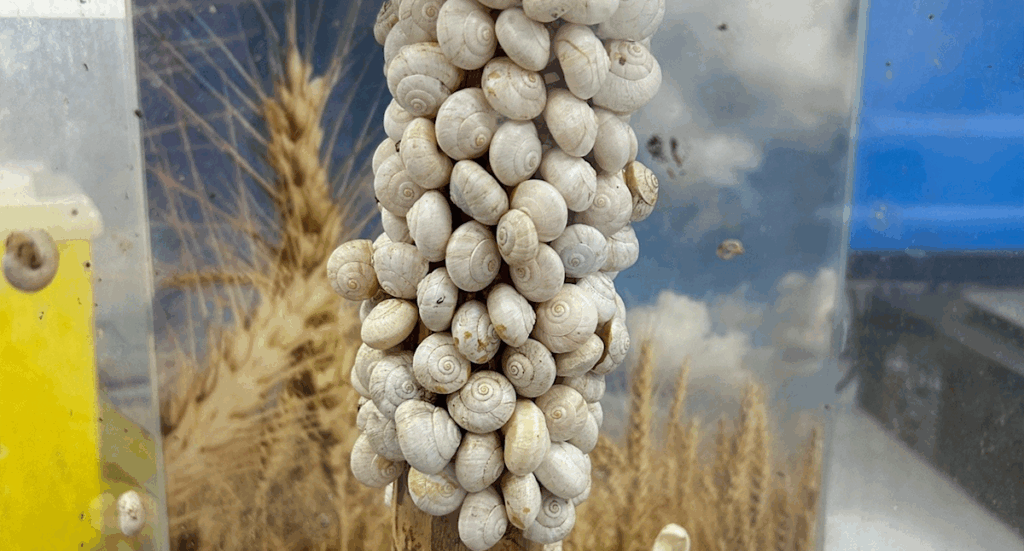
URGENT UPDATE: Invasive snails are wreaking havoc on Australia’s agricultural industry, racking up an astonishing $170 million in annual damages. New research from the University of the Sunshine Coast reveals that these snails, known scientifically as Theba pisana or white garden snails, have developed resistance to common pesticides, posing a significant threat to grain farmers across the nation.
Just announced, researchers discovered a specific enzyme in the snails that neutralizes the toxins in organophosphate pesticides. This alarming finding raises questions about whether the resistance developed in Australia or in the snails’ native Mediterranean habitat. Professor Scott Cummins, who led the study, stated, “It’s only been the last few hundred years that we’ve used pesticides with these chemicals, so the mutation has likely occurred during that period.”
The impact of these mutant snails is profound. They not only consume vital plant leaves but also contaminate processing equipment, leading to further financial losses for farmers. As the grain industry grapples with this escalating crisis, the need for effective solutions has never been more urgent.
Researchers at the university have noted that the enzyme is produced by the snails primarily during their reproductive season, which lasts up to four months each year when they are most active and exposed to pesticides. The discovery of such resistance in mollusks is unprecedented, with similar adaptations previously documented only in insects.
To combat this growing threat, Cummins and his team are exploring innovative alternatives, including the potential use of spider venom, a natural predator of snails. They are currently testing hundreds of different venoms, with some proving effective in paralyzing the invasive species. This research is part of a broader investigation at the ARC Centre of Excellence in Synthetic Biology, which is also looking into using toxins from banana spiders and sea anemones to manage other pests, like mosquitoes.
As chemical resistance mirrors the antibiotic crisis in human medicine, Cummins emphasizes a more strategic approach to pest control. He warns that blanket pesticide applications can lead to resistance, similar to how overuse of antibiotics has created resistant bacteria. “If we can understand how they perceive their environment… then we can have more targeted approaches,” he explained.
The urgency to find natural alternatives to chemical pest control is underscored by the environmental crisis linked to widespread chemical use. Not only do target pests evolve resistance, but they can also harm beneficial species. Recent studies indicate a troubling 45 percent decline in global insect populations over the past 40 years, which has serious implications for pollination and the broader ecosystem, affecting migratory birds, bats, and small marsupials.
This critical study has been published in the journal PLOS One, highlighting the need for immediate action and innovative solutions to combat the invasive snails before they cause even more extensive damage.
As Australia faces this escalating pest problem, the agricultural community and researchers alike are urged to pursue sustainable and effective methods for pest control. The fight against these mutant snails is not just a battle for farmers but a crucial step in protecting Australia’s unique environment.
Stay tuned for further updates as this situation develops.





